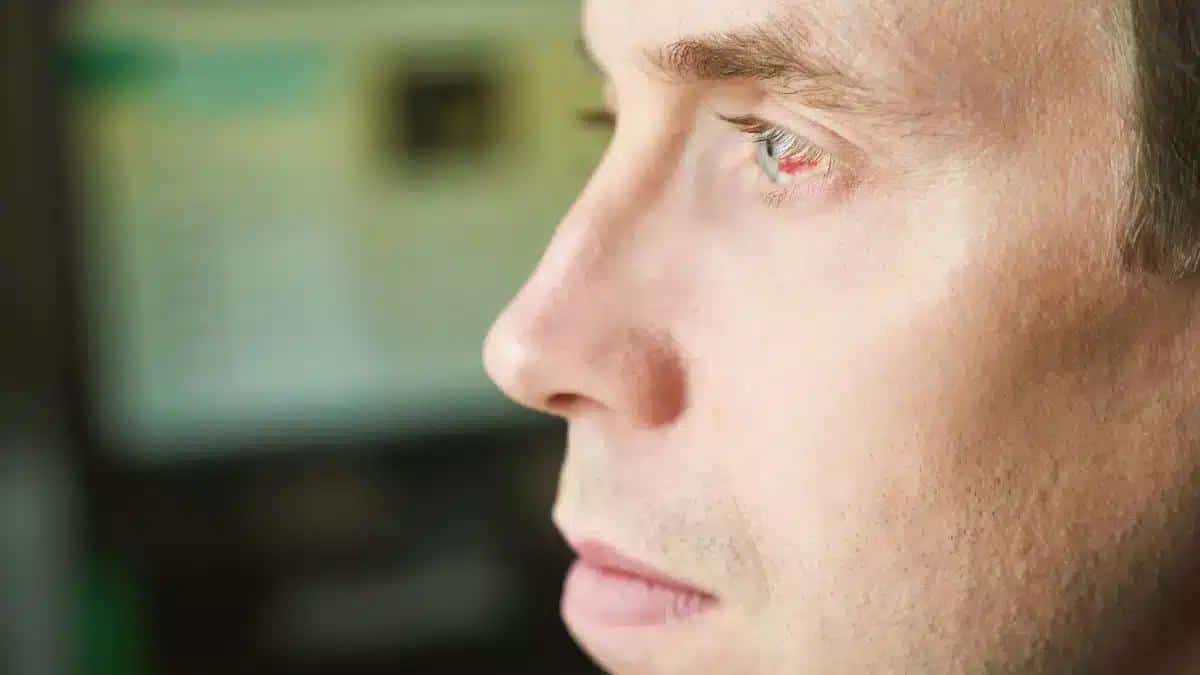Uveitis is characterized by the inflammation of the uvea, the central layer of the eye.
It may result in impaired vision, redness, sensitivity to light, eye discomfort, and, in some cases, headaches.
However, rather than being directly connected to the eye condition, headaches associated with Uveitis are frequently secondary symptoms.
It can be brought on by the pain and inflammation in the eyes.
This article will discuss the cause of Uveitis headache and ways to overcome it.
Can Uveitis cause headaches
Yes, Uveitis can induce headaches.
Although eye pain is the most prevalent symptom of Uveitis, headaches can also occasionally result from discomfort and irritation.
Rather than being a direct consequence of Uveitis, these headaches are often secondary and typically occur as a complication of eye discomfort.
Uveitis headache can be characterized as a dull, exhausting pain in the head.
Other symptoms, such as redness, sensitivity to light, and eye discomfort, may coexist with Uveitis headaches.
How does Uveitis cause headaches
 Source: AndreyPopov_from_Getty_Images
Source: AndreyPopov_from_Getty_ImagesThe inflammation in the uvea can exert pressure on the surrounding tissues and nerves.
This pressure can produce headaches as well as other symptoms, such as eye discomfort and light sensitivity.
The underlying condition that is causing Uveitis might also produce Uveitis headache.
The inflammation and irritation in the eye can cause headaches because of referral pain, light sensitivity, stress, and strain.
Referral pain: Headaches can result from the transmission of eye pain to other regions, including the head.
The pain signals that are being sent to different regions of the brain through the nerves in and around the eyes can cause Uveitis headaches.
Sensitivity to light: Light sensitivity is frequently brought on by Uveitis.
When your eyes are sensitive to light, the brightness of the light might cause you to blink frequently and strain your eyes.
This perhaps unintentionally leads to a headache.
Stress and strain: Prolonged Uveitis-related eye irritation or discomfort can lead to stress and strain, which can result in tension headaches.
Extended pain can lead to strain in the muscles of the head and neck, which can induce headaches.
There could be different underlying causes for Uveitis. Read our article: Exploring Uveitis Causes: From Infections to Autoimmune Factors, to know more.
Buy the best eye care products from GoodRxMedicine and regain your vision.
Treatment of Uveitis headache
 Source: Denisfilm_From_Getty_Images
Source: Denisfilm_From_Getty_ImagesThe underlying cause of the Uveitis determines the course of treatment for Uveitis headaches.
The majority of the time, treatment of Uveitis is necessary to overcome Uveitis headache.
This might include:
- Oral corticosteroids, steroid injections, or eye drops to lessen eye inflammation
- Immunosuppressive medications to weaken the immune system and lower inflammation
- Antibiotics or antiviral medications to cure any underlying bacterial or viral infections leading to Uveitis
Your doctor may prescribe over-the-counter analgesics like Ibuprofen or Acetaminophen to reduce the headache associated with Uveitis.
Additionally, they can advise using a cold compress to relieve eye pain and inflammation.
If the headache is being caused by light sensitivity, using sunglasses or limiting exposure to strong lights may be beneficial.
In addition to lowering general stress and pressure, getting enough sleep and relaxing can also help ease headaches.
Headaches associated with eye inflammation can be overcome by drinking enough water, taking care of your eyes, and practicing good eye hygiene.
Uveitis can be managed effectively with medications. Read our article: What is the Best Uveitis Medication: Your Path to Recovery to learn more about medicines used to treat Uveitis.
Conclusion
Uveitis headache can be painful and irritating.
However, headache is not a primary symptom of Uveitis.
It can develop as a result of the strain, discomfort, and referral pain brought on by the inflammation of the eye.
Hence, it is essential to treat Uveitis to avoid headaches and other related complications.
Corticosteroids and immunosuppressants can aid in treating the inflammation associated with Uveitis.
This, in turn, helps in reducing Uveitis headache and other symptoms.
To relieve headaches, your doctor may suggest pain relievers and cold compress.
Also, overcoming the underlying cause of Uveitis headaches, such as light sensitivity and stress, can help in reducing headaches.
Experience rapid relief from inflammation and discomfort with the eye care products available at GoodRxMedicine.
Frequently Asked Questions
Does Uveitis cause headaches?
Yes, Uveitis can lead to headaches as a secondary symptom in addition to impaired vision, redness, sensitivity to light, and eye discomfort.
How to treat headaches linked to Uveitis?
Generally, treating the underlying cause of Uveitis can aid in overcoming Uveitis headache.
This can be achieved by corticosteroids and immunosuppressant medications.
Besides this, for relieving headaches, your doctor may also suggest analgesics like Acetaminophen.
Are headaches always a symptom of Uveitis?
Headaches aren’t a direct symptom of Uveitis but can occur as secondary effects due to eye pain, light sensitivity, or stress caused by the inflammation.
What type of headaches is Uveitis usually associated with?
Tension headaches are frequently experienced by Uveitis patients.
These headaches may be the result of tension and stress brought on by light sensitivity or eye pain.
Is light sensitivity normal in headaches caused by Uveitis?
Yes, Uveitis frequently leads to light sensitivity, which may trigger headaches.
Controlling the amount of bright light exposure might ease the pain.
When referencing outside resources, GoodrxMedicine always provides full citations. To learn more about the measures we use to maintain the quality of our content, please review our Content Information Policy.











